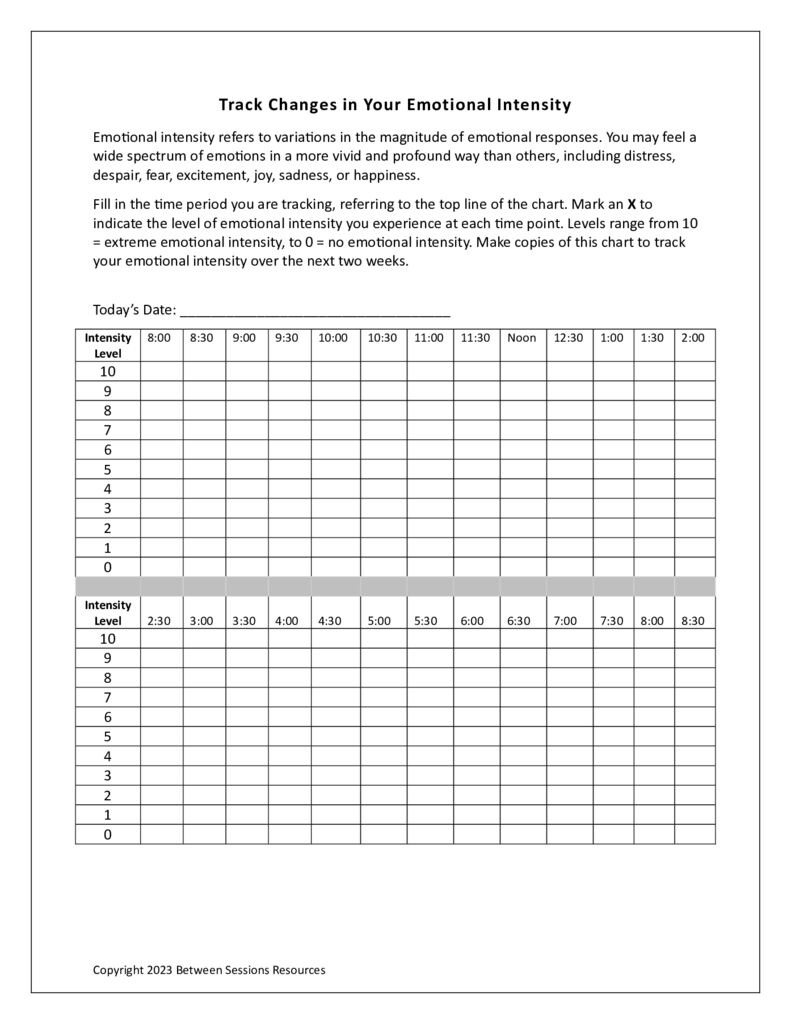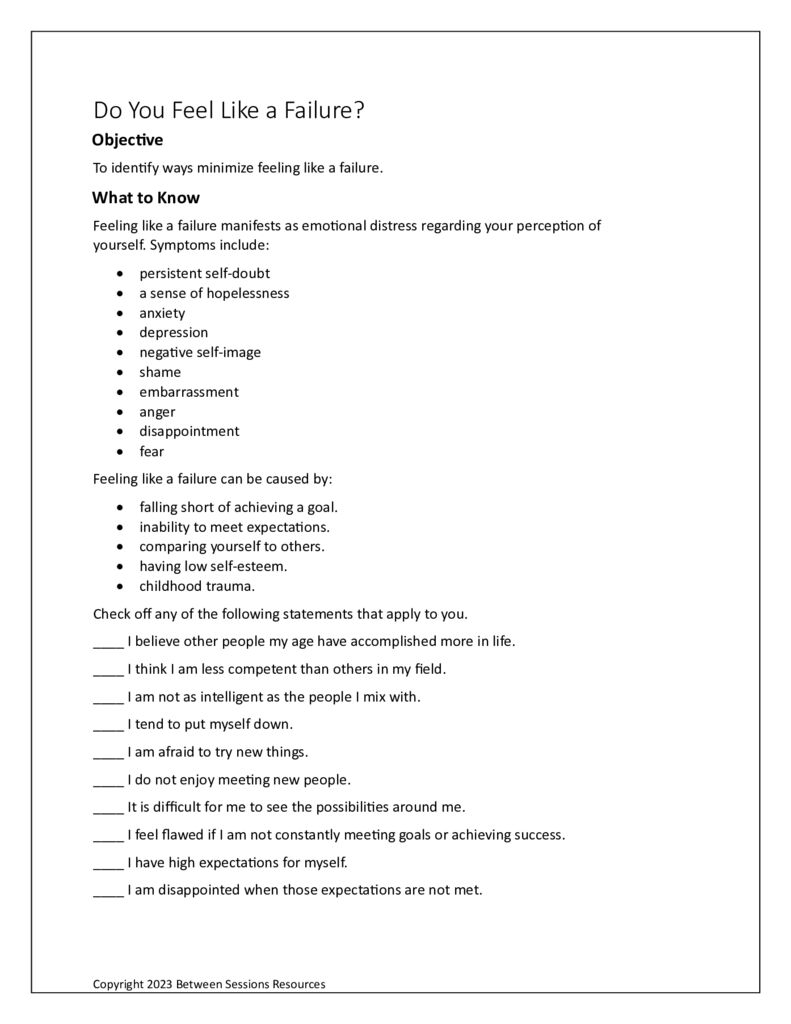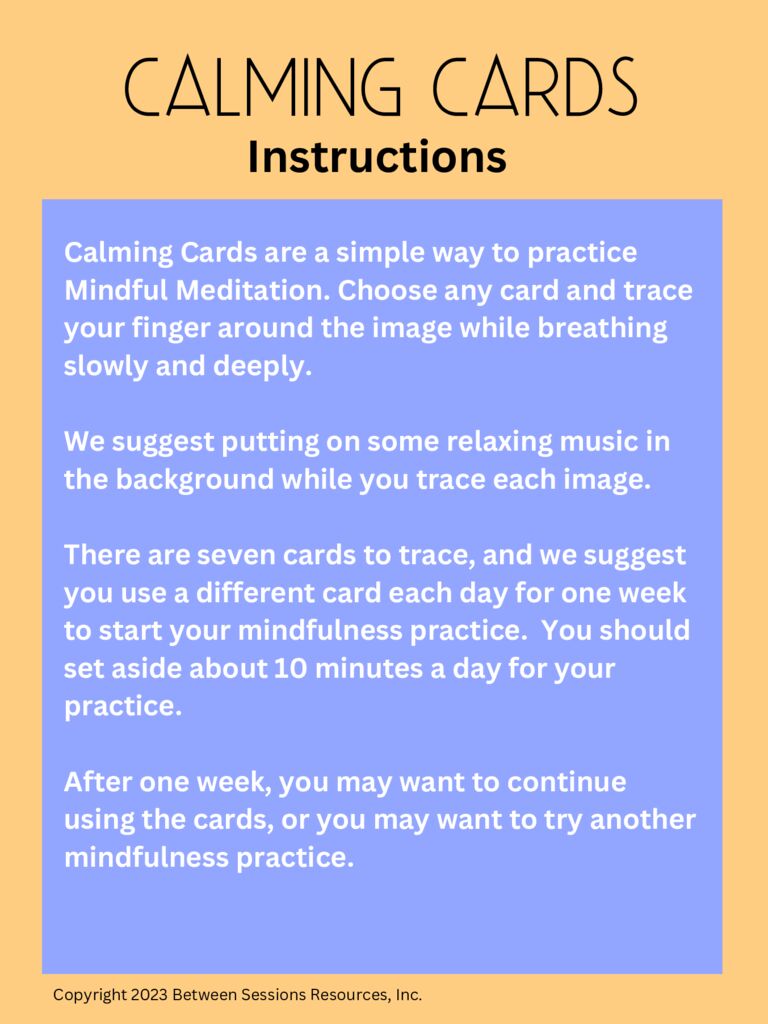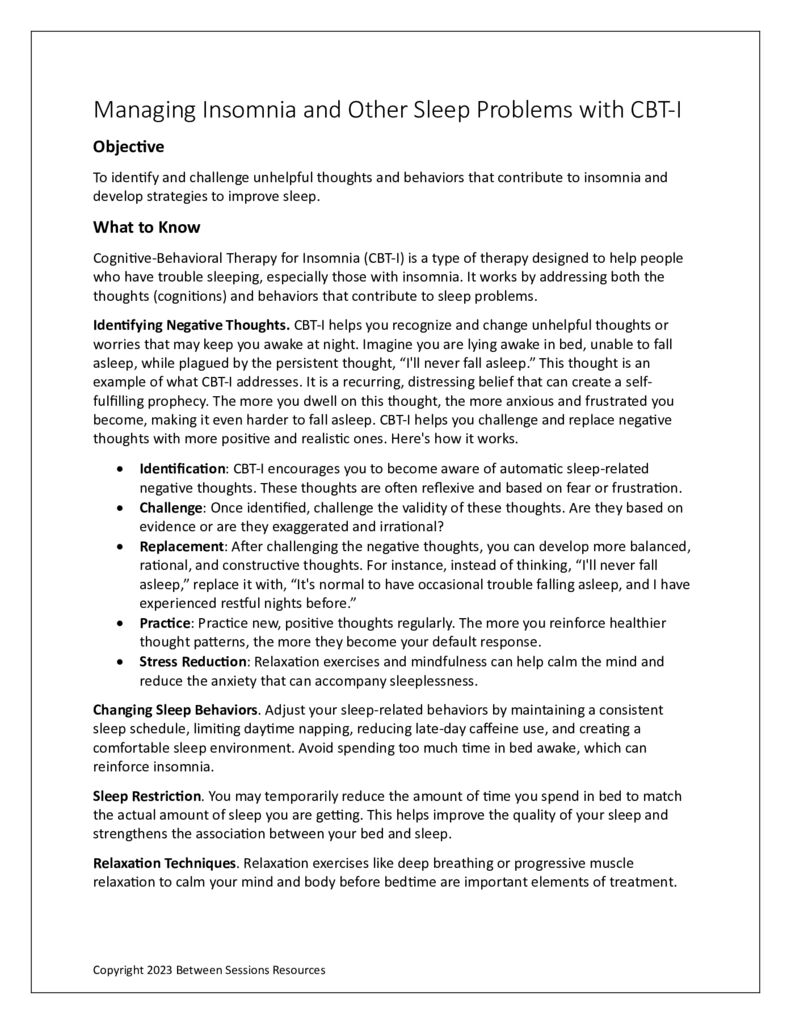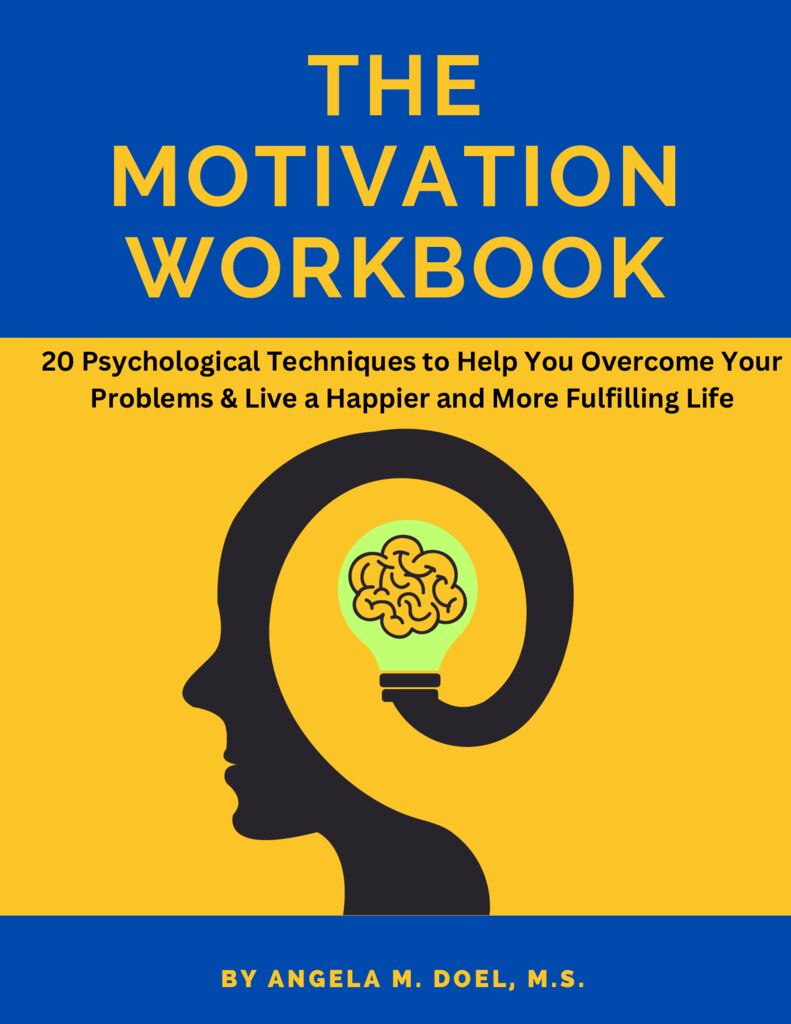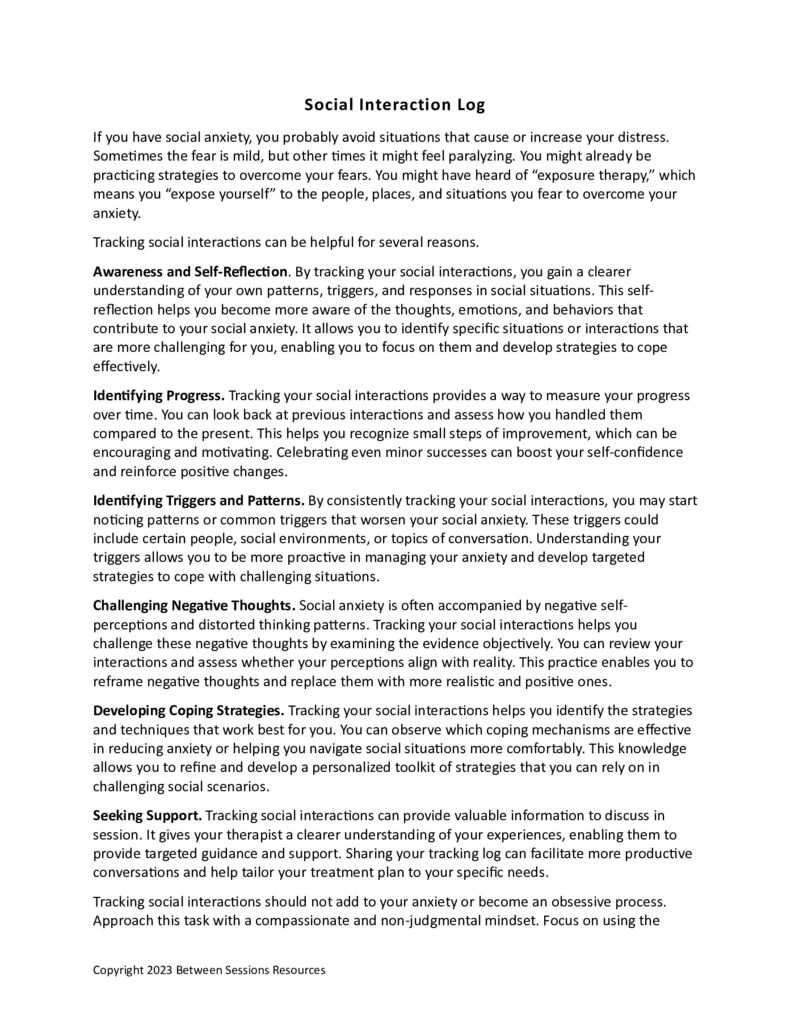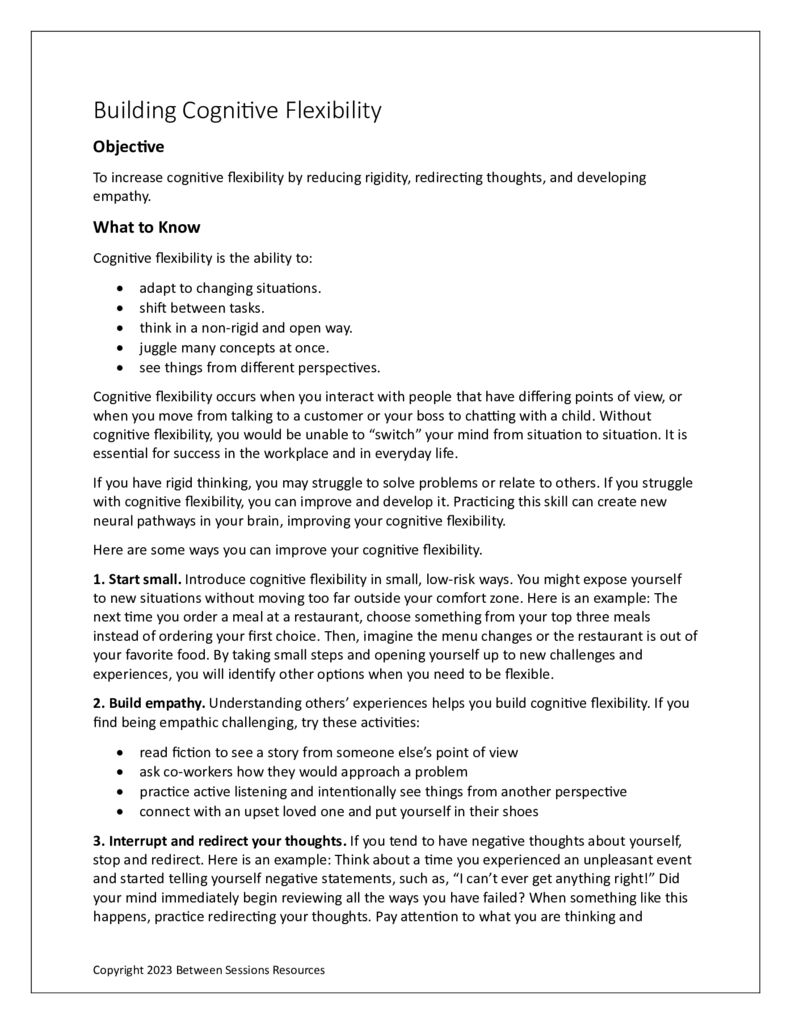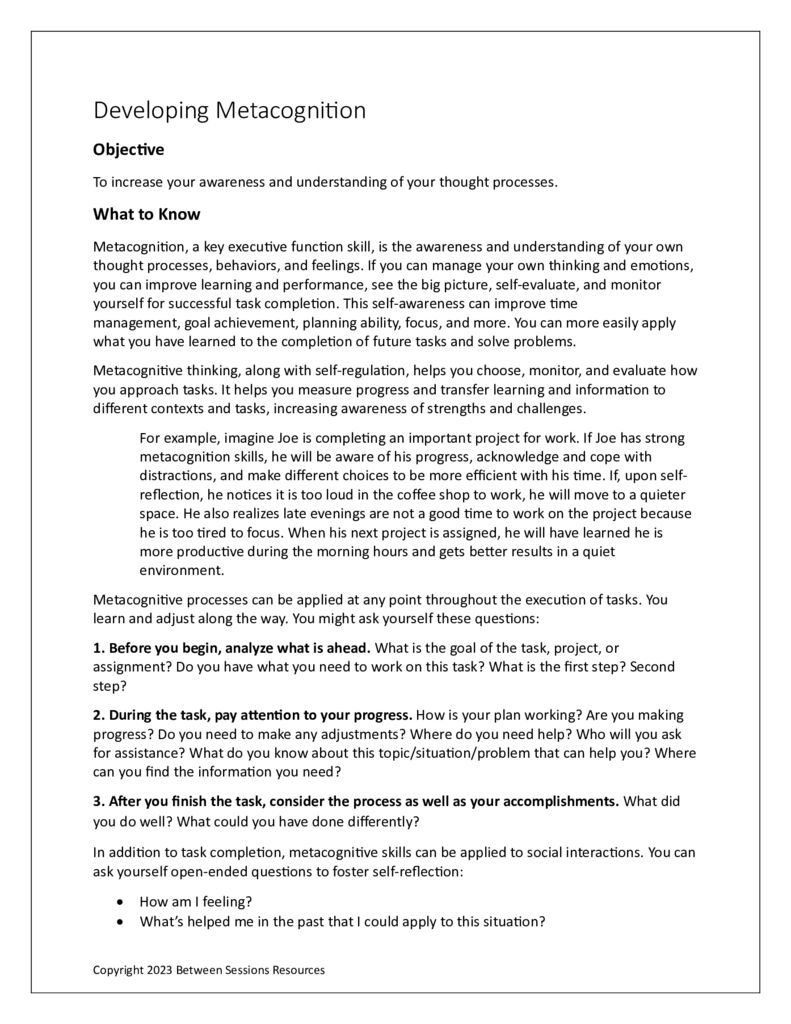This form is intended to be used by people who have intense often overwhelming emotions, such as anxiety, fear, sadness, or even euphoria. The tracking form will help the therapist teach and monitor emotional regulation skills. (1123. emotional regulation, bipolar, Bipolar Disorder)
This worksheet explores why some people bounce back from failure while others experience feelings of self-doubt, depression, anger, and disappointment. It suggests 8 ways to overcome the negative feelings that can accompany a failure, including engaging in self-compassion, focusing on the process rather than the results, challenging negative thoughts, and more. The worksheet provides questions to help people explore their feelings of failure and find appropriate strategies to move on. (1023, depression, anxiety, job satisfaction, anxiety)
There are seven Calming Cards, one for every day of the week. People are asked to practice Mindful Meditation by slowly tracing each image with a finger while practicing deep breathing. This is a simple technique that can be used to practice relaxation and mindfulness. (1023, mindfulness, meditation, relaxation, anxiety, sorry)
CBT-I helps people recognize and change the unhelpful thoughts or worries that keep them awake at night. The worksheet gives people the five steps to overcoming the negative thinking that keeps them awake as well as sleep hygiene tips and a sleep log. (0923. sleep disorders, insomnia, CBT-I)
This workbook has 20 techniques to help people find the motivation they need to change. Motivation is a much more complex issue than most people, involving at least 12 areas of the brain. This workbook goes well beyond popular psychology concepts of visualization and affirmations, using evidenced-based techniques the workbook helps people set goals, increase flow experiences, improve self-efficacy, overcome doubt, and more. (0823. resistance, change, therapeutic alliance)
This tool is designed to assist people in monitoring and understanding their hoarding behaviors. The log is designed to help monitor triggers, thoughts and feelings, items acquired, attempts at organization, difficulties, and obstacles, and coping strategies. (0623, hoarding, OCD)
This form can be used to help people keep track of their progress in dealing with social anxiety. The chart is used to measure the type of social situation, duration of activity, level of discomfort, thoughts, and any physical sensations. (0623, data collection social anxiety)
This worksheet is designed to help clients develop cognitive flexibility by reducing rigidity, redirecting thoughts, and developing empathy. (0623, ADHD, cognitive flexibility, self-regulation, executive functioning, rigid thinking, empathy, problem-solving)
This worksheet is designed to help clients develop metacognitive thinking, along with self-regulation, to help them choose, monitor, and evaluate how they approach tasks. It helps them measure progress and transfer learning and information to different contexts and tasks, increasing awareness of strengths and challenges. (0623, ADHD, metacognition, thinking, self-regulation, executive functioning, memory, problem-solving)
This form makes it easy for people to track compulsive activities associated with Obsessive Compulsive Disorder. People are asked to rate a variety of activities on a 1 to 5 scale reflecting how much the compulsion impacts their lives. (0623. OCD, rating scale, impairment, compulsive behavior, compulsion)

